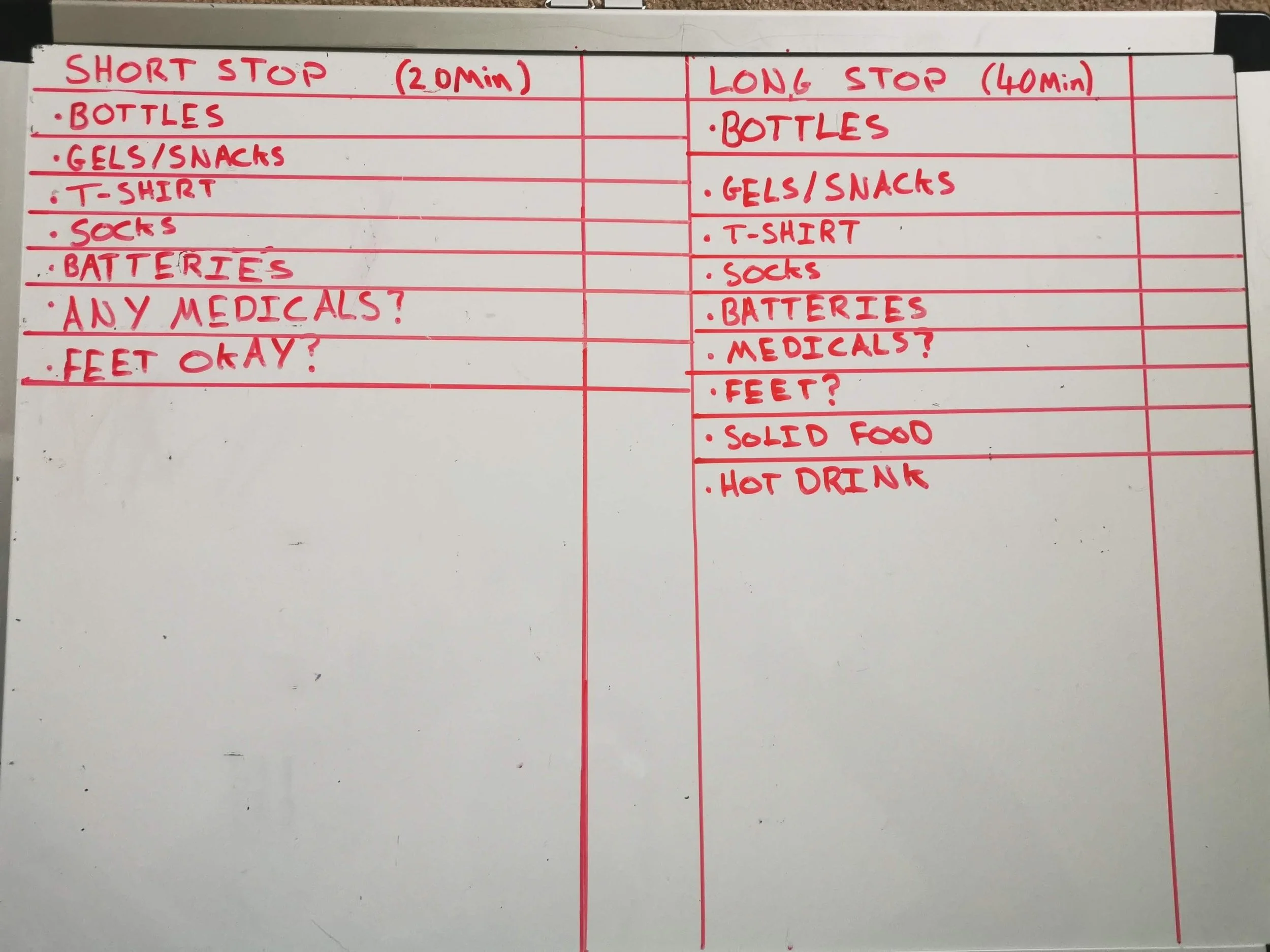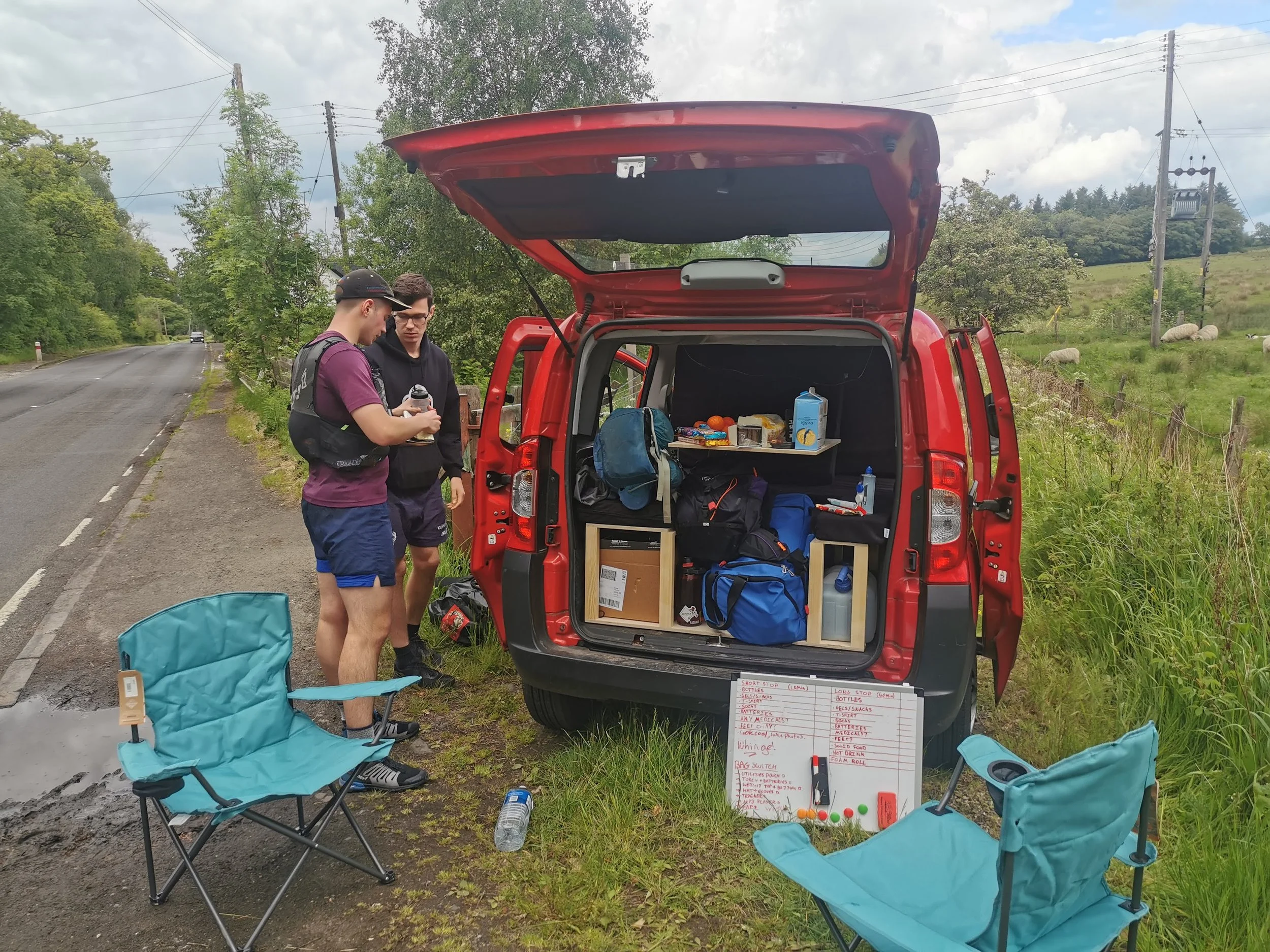Being the Crew: What I learned supporting a friend on the West Highland Way
I’ve run a couple of ultras, I’ve worked as safety/checkpoint team on a couple more, but I’ve never properly crewed a single runner before.
There are literally thousands of books on how to train for an ultra, what to eat, how to run, what to wear, what should be in your pack etcetera, etcetera.
But, whilst preparing to crew my friend Jack on the West Highland Way last week, I could find virtually nothing on how to be a good crew.
A “crew”, for those who have no idea what I’m blethering about, is just a group of people, usually with some kind of van, who support a runner. They’re there to make sure a runner is fed, clothed, and generally mentally and physically looked after.
So, what did I learn? Well, read on.
Have a checklist: Checkpoints can be hectic, particularly early on when your runner is fresh and raring to go. Having a checklist of things to do at every stop helps keep things fast and focused, and later on when everyone (including you) is knackered, it helps make sure nothing essential is missed.
We changed the Short Stop time to 10 minutes and added “look cool, take photos” and “have a whinge” to both sides.
Have timings, and stick with them: Discuss with your runner how long each break should be. When they stumble in, set a timer and make sure you have them restocked and ready to go before it rings. You have to be the driving force here, later in the run they are going to be sleep deprived and physically sore, do not let them sit around feeling sorry for themselves. Ultimately, an extra 2 minutes staring into space is not going to magically make them feel better, but two minutes at every checkpoint adds up to a lot of wasted time.
Know your checkpoint: Where is your running coming from? Where are they going next? Where are the toilets? Where did you put the Bodyglide? Where can you get a good coffee? This last question is of primary concern.
There was organisation in the chaos, I promise.
Concurrent activity: In the theme of not wasting time. Make sure the crew are hustling. One person fills bottles, one gets food ready, one gives the runner a gentle hug and tells them it'll all be over soon.
Don’t listen to your runner: Okay, do listen a bit, but be strict. One bit of advice I did get was “treat your runner like a toddler”. Sleep deprivation makes people stupid. Low blood sugar can make them nauseous. They’re not going to want to change their socks, tape that blister, or have something to eat. You have to be the firm guiding voice of reason. Day two of our run was a scorcher and I, stupidly, listened to Jack when he said he didn’t need suncream. The result? He’s probably still peeling.
He was eating, but not fast enough!
Don’t take anything personally: See the above point about your runner being a toddler. They will be tired and irritable, they’ve been out there for hours stewing in their own leg cramps and hypoglycaemia. If they do snap, don’t take it personally, they really don’t. Likely, Jack was a perfect gentleman throughout, 12/10 would crew again.
Bring all the comfy things: These are for you and your runner. I brought an old sleeping bag I don’t mind getting grubby so I could wrap Jack up nice and warm whatever state of muddy, sweaty dishevelment he rocked up in. Don’t forget you are going to be sitting around for long periods of time as well, keep yourself comfortable.
The sleeping mat made a surprisingly good little table.
Look after yourself: This follows on from the above. You’re going to be no use to your runner if you’re cold, tired, bored and miserable yourself. Remember, you need to have energy for two here. I spent the second half of Jack's run crewing him solo. I had plenty of chances to nap but I was so nervous I ‘d miss him that I didn’t (I was also just having fun spotting deer and watching the sunrise). Twenty five hours in I was suddenly very very tired, this made me a less useful crew and was borderline dangerous. I had to stop for a while and have a decent sleep before I was safe to drive again.
Bring some friends: See above point for why.
Have fun: This may all sound like a lot of hard work, but it really is fun. You’re outside, probably somewhere pretty beautiful, doing something pretty cool with your friends. Enjoy it, take photos, embrace the madness, that’s where the best stories come from anyway.



